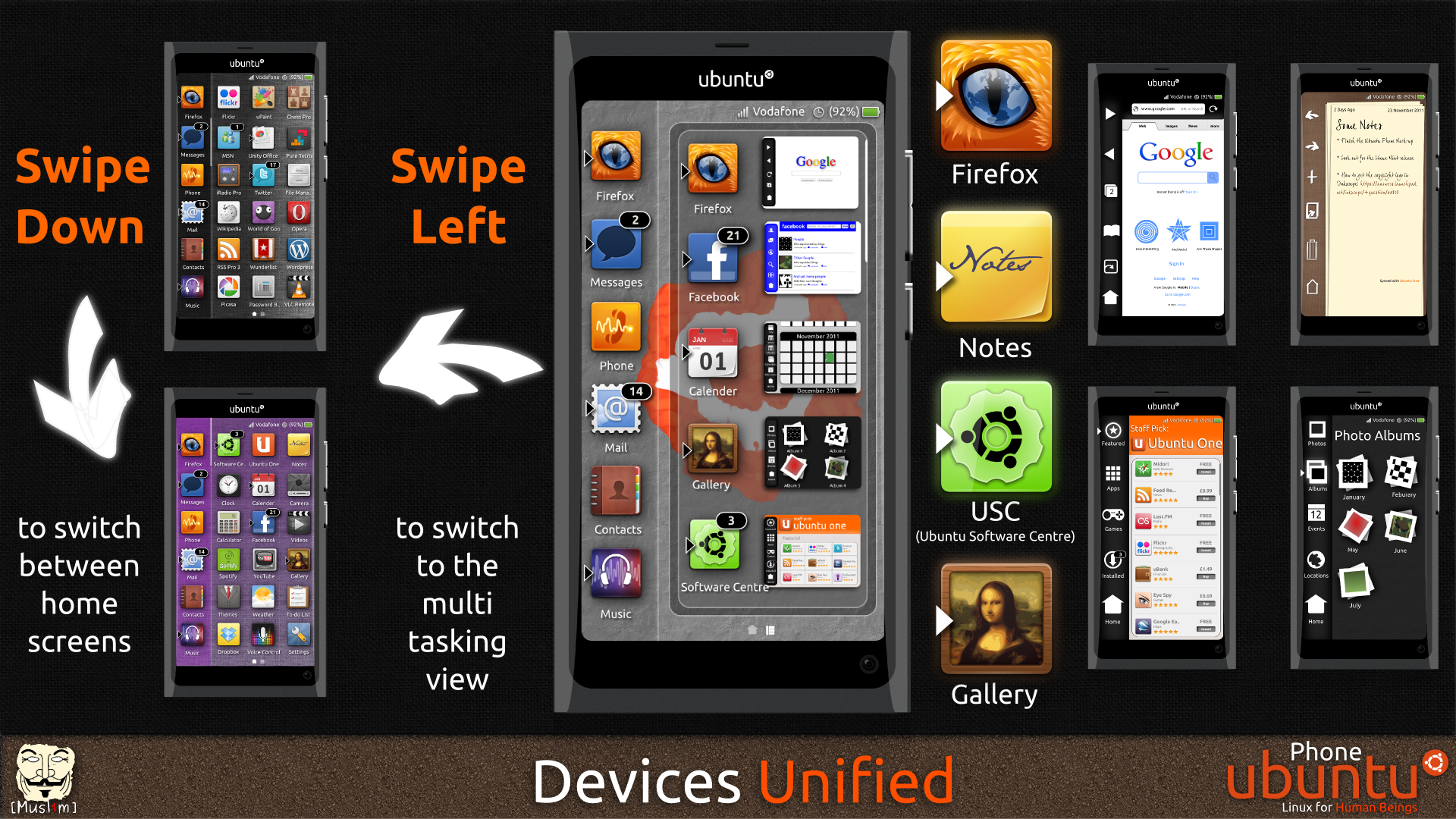Canonical works on software. That's it. They will not be the OEM for this device, but rather provide the software for vendors to brandish in their products (like what Google does with Android).
The Speculation Begins
1% of consumer desktop and laptop computers run Linux (Wikipedia statistics). Linux is gaining more users daily than any other Operating System family out there, and Ubuntu is the distribution that most people are flocking to. That said, it's still in the very back of the OS foodchain and you almost never hear about it in common society. It made a big splash in the Linux world, but I can't be the only one thinking that vendors could care less about it. Canonical is a large company, but not big enough to run advertisements for Ubuntu (or even OEM the hardware for the phone), so relying on a vendor is both risky and unlikely to work. I hope I'm wrong, though. People said the same thing about Android when it came out. The thing is, unlike Android the Ubuntu mobile OS does not break upstream compatibility. The community as a whole could benefit from its success in mobile.

Developer Information
Like Firefox mobile OS the Ubuntu phone supports HTML5 web apps from the get-go, increasing the availability of popular web applications on the phone. In addition to that, you have access to a full arm Linux system with core utilities, meaning that you could make an app in any language that natively runs on Arm Linux. Imagine an app running Qt and Lisp on the Ubuntu phone; it would've never been considered possible.
A smart decision was to use QML for the UI, so developers that already have experience with Qt (Qt5 specifically) can hit the ground running with this phone.

This comment has been removed by a blog administrator.
ReplyDeleteYour comment is being deleted for the irrelevant advertisement in your Ellipse, but you are very welcome.
Delete